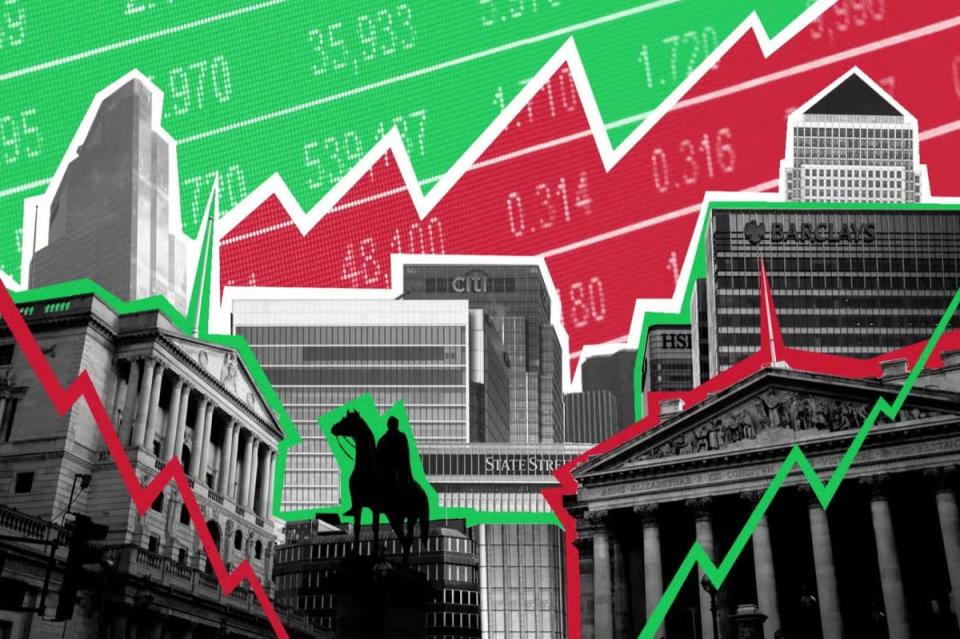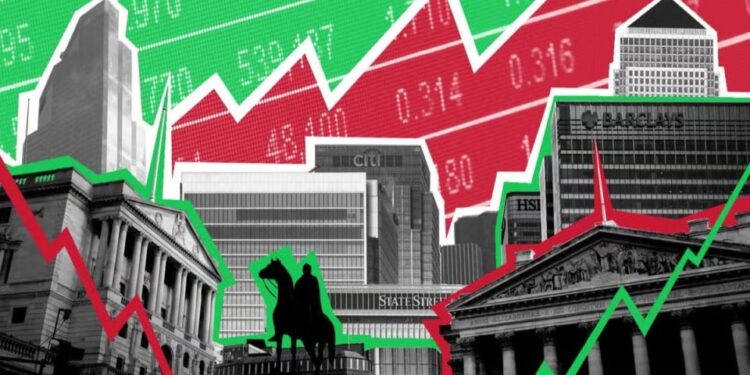
Public sector borrowing up by more than expected
07:36 , Graeme Evans
The £13.7 billion of public borrowing in August compares with the Office for Budget Responsibility’s (OBR) forecast of £11.2 billion and the City consensus of £12.1 billion.
It continues the run of bad news on the UK finances, with Capital Economics reporting that borrowing is on track to overshoot the OBR’s 2024/25 forecast of £87.2 billion by £6.2 billion.
Today’s report by the ONS highlights the tight fiscal position facing Chancellor Rachel Reeves ahead of her first Budget on 30 October.
However, Capital Economics thinks it may not all be bad news for the Chancellor.
It said an improved economic backdrop since March and the rolling-on of the five year ahead fiscal rule means the OBR may hand the Chancellor more headroom than the £8.9 billion at March’s Budget, perhaps around £22 billion.
The consultancy added: “That said, she may decide to bank most of any increase in her headroom for future fiscal events. We think she will raise spending by £16 billion a year and raise taxes by around £16 billion a year to pay for it.”
Retail sales rally before setback to consumer morale
07:24 , Graeme Evans
Warmer weather and end-of-season sales helped supermarkets and clothing retailers to drive today’s better-than-expected retail sales performance.
Monthly volumes rose by 1%, with the figure for the three months of summer up by 1.2% when compared with the equivalent quarter to May.
The ONS said the annual growth in volumes of 2.5% was the largest since February 2022.
However, the boost from the figures has been offset by this morning’s poor GfK report on consumer confidence.
Amid fears of tax rises in October’s Budget, the major purchase index slid ten points and the outlook for personal finances over the next year by nine points.
Retail sales growth beats hopes, public borrowing hits £13.7bn
07:09 , Graeme Evans
Retailers enjoyed a strong August after figures published by the Office for National Statistics today showed sales volumes rose by a forecast beating 1%.
The performance, which followed a rise of 0.7% in July, left the year-on-year figure up by 2.5%. That’s much bigger than the City consensus of 1.4%.
Meanwhile, figures on the public finances showed the Government borrowed £13.7 billion in August. Economists had expected a figure of £12.4 billion.
Consumer confidence in pre-Budget reverse
07:00 , Graeme Evans
Consumer confidence appears to have taken a big hit in the run-up to next month’s Budget.
GfK’s long-running barometer slumped by seven points in September to minus 20, taking the survey back to levels seen at the beginning of the year.
All five sub-measures fell, led by a decline of 12 points concerning people’s view of the general economic situation over the next 12 months.
The major purchase index slid ten points and the outlook for personal finances over the next year by nine points.
The reversal comes despite stable inflation and the prospect of further cuts in interest rates.
GfK consumer insights director Neil Bellamy said: “Following the withdrawal of the winter fuel payments, and clear warnings of further difficult decisions to come on tax, spending and welfare, consumers are nervously awaiting the Budget decisions on 30 October.”
The survey, which involved 2003 people, took place between 30 August and 13 September.
FTSE 100 seen lower after US markets rally, pound at $1.33
06:57 , Graeme Evans
The support of the Federal Reserve’s 0.5% interest rate cut yesterday helped the Dow Jones Industrial Average and S&P 500 index surge to record highs.
The Dow closed above 42,000 for the first time after a rise of 1.3%, while the S&P 500 rallied by 1.7% and the tech-focused Nasdaq Composite by 2.5%.
Big movers included Nvidia and Apple after their shares gained 4%.
The FTSE 100 index closed 0.9% or 75.04 points higher at 8328.7 but is forecast to fall back by about 47 points this morning.
The pound remains near $1.33, having reached its highest level since March 2022 after the Bank of England left interest rates unchanged.







